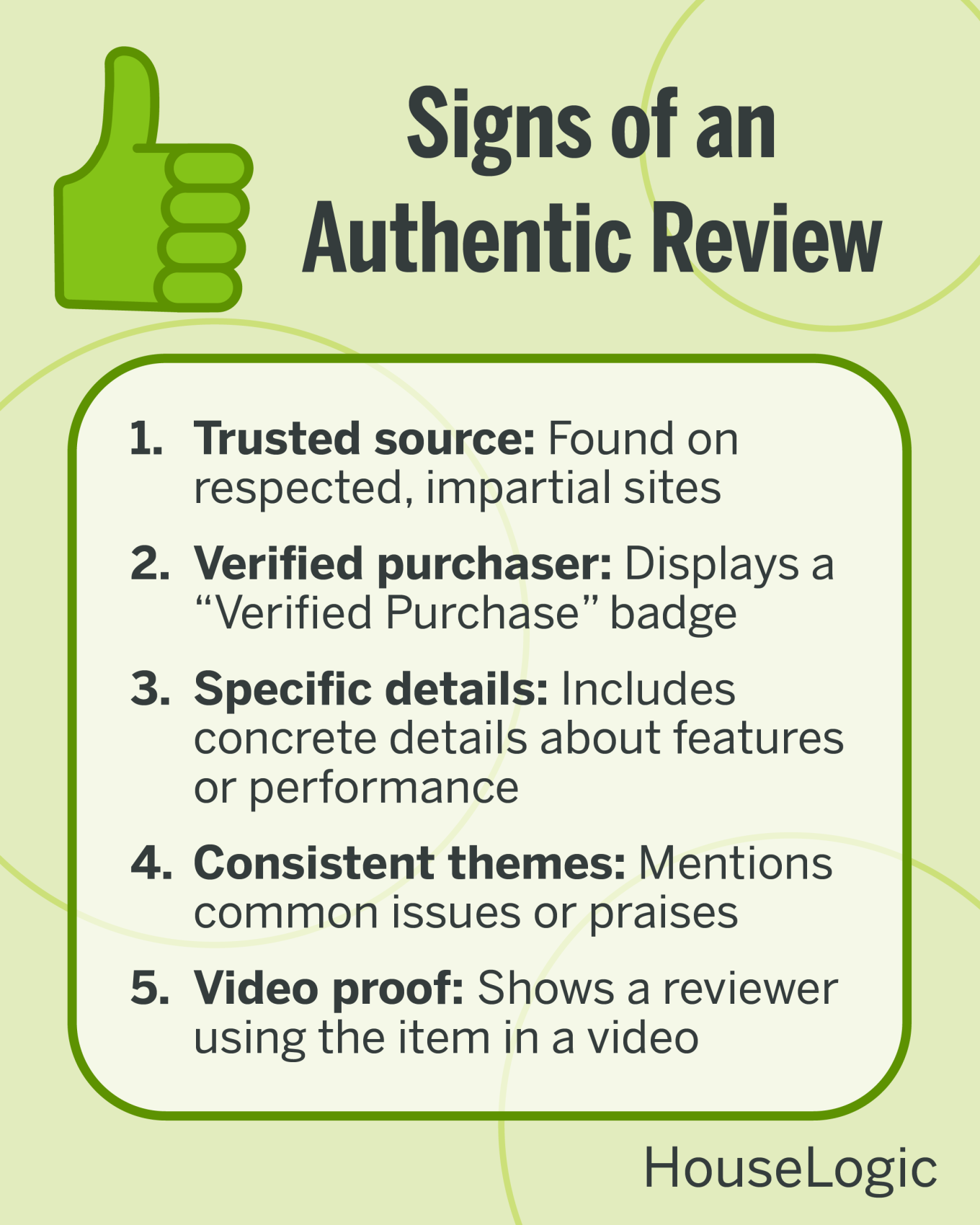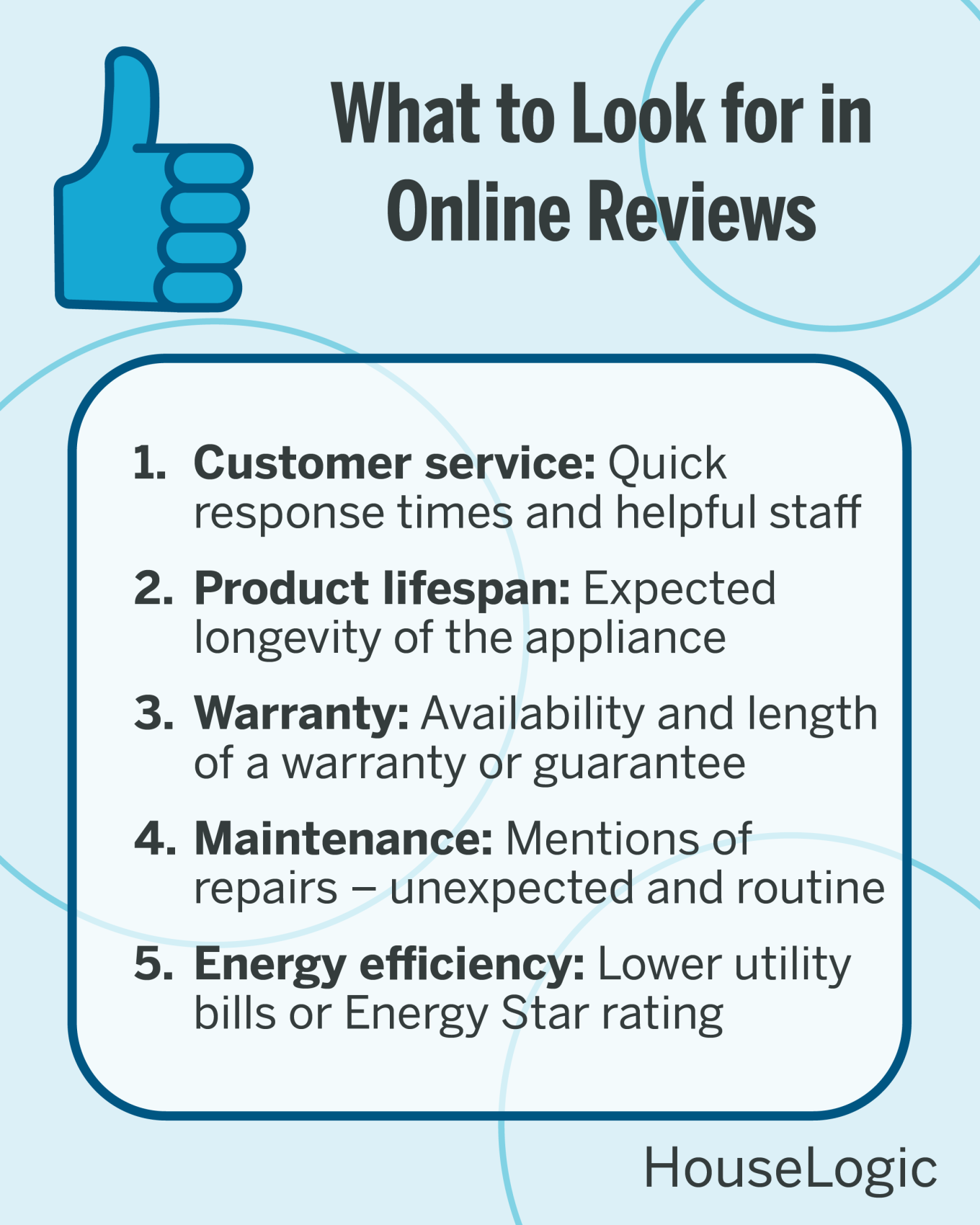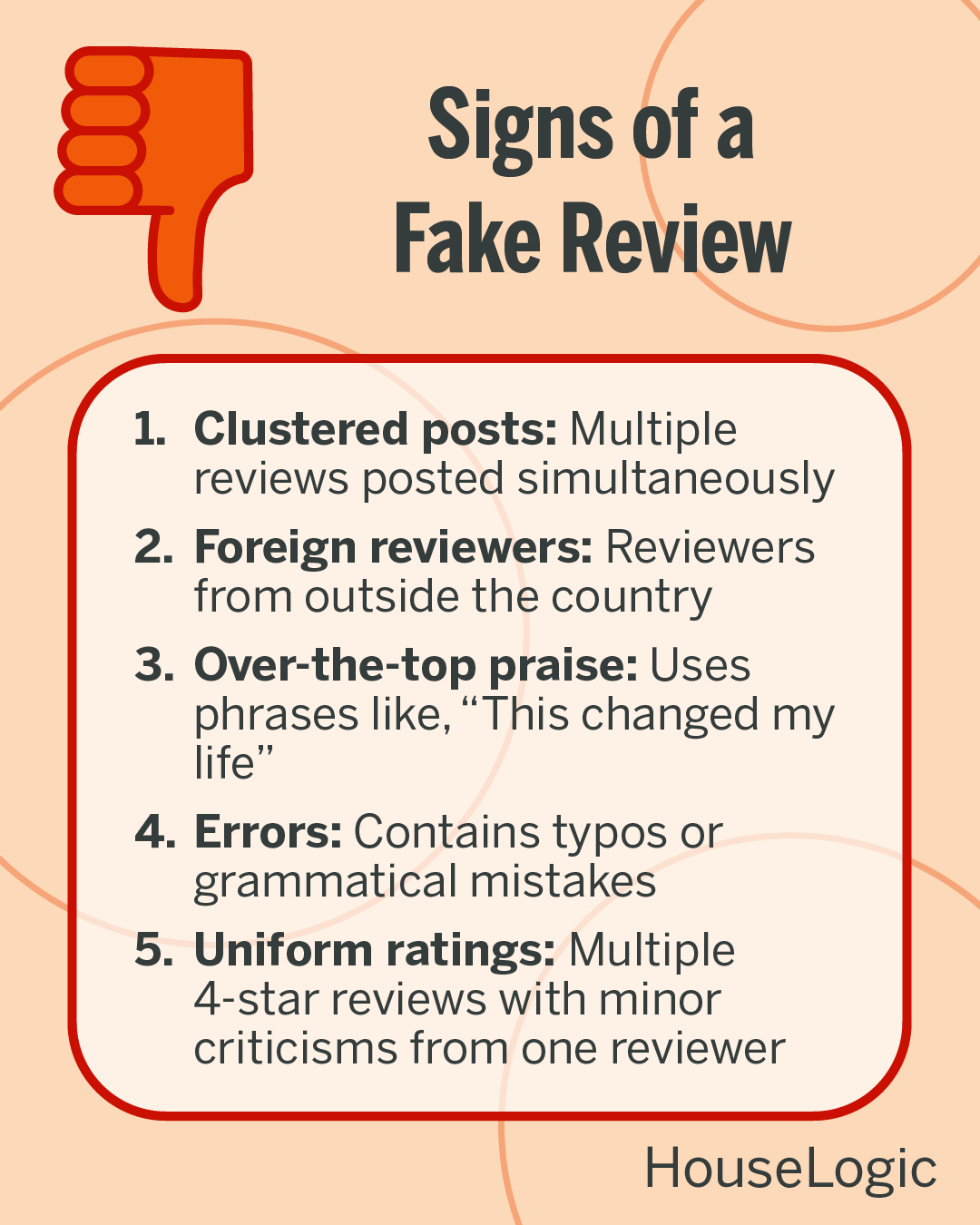Appliances are investments — now more than ever. They have big ticket price tags, and they need to last a while without needing costly repairs. So, it makes sense to read online reviews to narrow your search, even if you intend to buy the appliance from a store with a door. So, what's the secret to interpreting online reviews that are often contradictory and possibly even phony?
Sifting fact from fiction can be daunting. But following some do's and don'ts can help you choose an appliance that you can afford (and will buy at the right time) — and won’t regret.
Analyzing Online Consumer Reviews Like a Pro
Whether you're shopping for an air fryer or a refrigerator, you'll want to check out credible platforms, look for reliable reviews (sift out those fakes), and pay attention to warning signs. Doing that work before you buy can save you money — and buyer's remorse.
The Best Platforms for Accessing Consumer Reviews
Online retailers, publications and their sites, and social media platforms can all be valuable ways to obtain consumer reviews. Richmond Howard, founder of World of Blenders household appliance review site, recommends:
- "Consumer Reports"
- "Wirecutter"
- CNET
- Amazon
- Best Buy
- Home Depot
Don’t limit yourself to one or two reviews, recommends Michael Atleson, an attorney with the Federal Trade Commission’s Division of Advertising Practices in Washington, D.C., which offers advice to consumers. “Use a variety of review sites, starting with well-known sites or publications known to have impartial and/or expert reviews of the product you’re looking for.”
The reason is that fake, deceptive, or manipulated consumer reviews could be a bigger issue on one or some platforms, but not all platforms that are reviewing the product, he explains. Avoid placing all your eggs in one basket.
How to Spot Reliable Online Reviews
Over-the-top positive online consumer reviews can be suspect. Here are indicators of reviews that are positive and credible.

Verified Purchase Badges
Purchasers of appliances and other products should seek “Verified Purchase Badges” on Amazon, according to Steve Bernas, president and CEO of the Better Business Bureau of Chicago and Northern Illinois. These badges are proof the person providing the consumer review actually purchased the item, eliminating one layer of fraud. That’s important, given a statistic that 42% of Amazon reviews are fake, he adds.
Energy Saving Guide Labels
The less energy an appliance uses, the less it costs to run — and that saves you money. The FTC administers an energy labeling program covering major appliances. You can find a yellow tag, which is an EnergyGuide label, on most home appliances that tells you how much energy that appliance will use.
Specific Details
Indicators of review authenticity can include specific “concrete details” about a product’s reliability, performance, and value, Howard says. Common themes, like complaints or praise from reviewers about specific features, can also signal the genuine article.
Some reviewers post photos of the appliance, especially if they had problems with the appliance or it needed repairs fairly quickly. That, too, can add authenticity to a review.
Video Reviews
Relying on video reviews can be helpful, says product reviewer Thomas Smith, CEO of Walnut Creek, Calif.-based Gado Images. “Go to YouTube and find reviews that feature a person actually using the appliance,” he recommends.
“So many sites hire freelance writers, have them read the product info from the manufacturer, and then write a long ‘review’ pretending they’ve tested the product and have real opinions about it.” With video reviews, you can actually see and verify the presenter is using the product, he adds.
Despite the positives, video reviews and purchases can be risky. For example, the Better Business Bureau advises consumers to be alert when shopping and interpreting consumer reviews on TikTok. Like the other experts quoted, the BBB recommends vetting information from more than one source. “Read reviews on TikTok, on the company or individual’s website, and on sites like BBB.org to make sure what you read is impartial and comes from real buyers.”
Emphasis on Qualities That Matter
When monitoring appliance reviews that appear reputable, take careful note of several areas, says Carl Jensen, personal finance expert and founder of London-based Compare Banks. “The efficiency of the item over the years may be mentioned,” he notes. “This knowledge can be helpful, especially when buying expensive things that should last for a long time.”

Also, zero in on evaluations that delve into customer service, the maker’s guarantee, the speed and simplicity of gaining repairs, and the product’s energy efficiency.
Recognizing Red Flags in Online Reviews
On the other hand, myriad tipoffs can warn of ripoffs. If it seems the reviewer has written just one review for just one product and otherwise has no record as a reviewer, that could be suspicious, Atleson says. If the reviewer has reviewed many products being sold all over the country, and they're in Europe, that could also be a warning sign.

Fake Reviews
A burst of positive online reviews over a short time could point to a fraudulent review or reviewer, Atleson says. Bernas agrees: “Fake reviews can be grouped. Are the time stamps all at the same time? Sometimes reviews are clustered together at the same time, on the same day, and then there’s nothing posted after that for months.”
Too Much Enthusiasm
Bernas also warns consumers to be wary of enthusiastic phrases used repetitively in multiple consumer reviews. An example might be, “This product changed my life!”
Incentives
“There can be some reviews that aren’t fake, but result from the reviewer getting an incentive,” Atleson says. “But most major review platforms have banned incentivized reviews. [That’s why] we suggest not relying on one review but on reading many reviews.”
Options Besides Consumer Reviews
What if you've gone through many, many online reviews and are still flummoxed about which brand or type to purchase? Consider supplementing online reviews with some proven sources.
Family and Friends
The good thing about appliances is that virtually everyone you know, from family members to friends, co-workers and neighbors, has bought them, Atleson says. Poll them about what they did and didn’t like.
Stores With Doors — and People
”Another option is to go to stores more likely to have people working there who know the company or know the product,” he Atleson adds. “If you talk to more than one of them, you might get solid information about why one appliance company is better than another, perhaps based on warranties or the repair record or factors not as likely to be discussed online. That’s old school, the kind of thing people did before the internet.”
Old school can be an excellent school, Bernas agrees. “Going back to a retailer or a trusted vendor, particularly the large vendors who do this all day long” is a good idea, he says. “They will have their own reviews of products. They are a trusted source.”
The final word? “Given the expense of appliances and the hope their appliances will last a long time, it pays to do a fair amount of research before buying,” Atleson concludes. “That includes looking at reviews from a variety of sources and also checking other options for information including family, friends, and retail staffers.”
